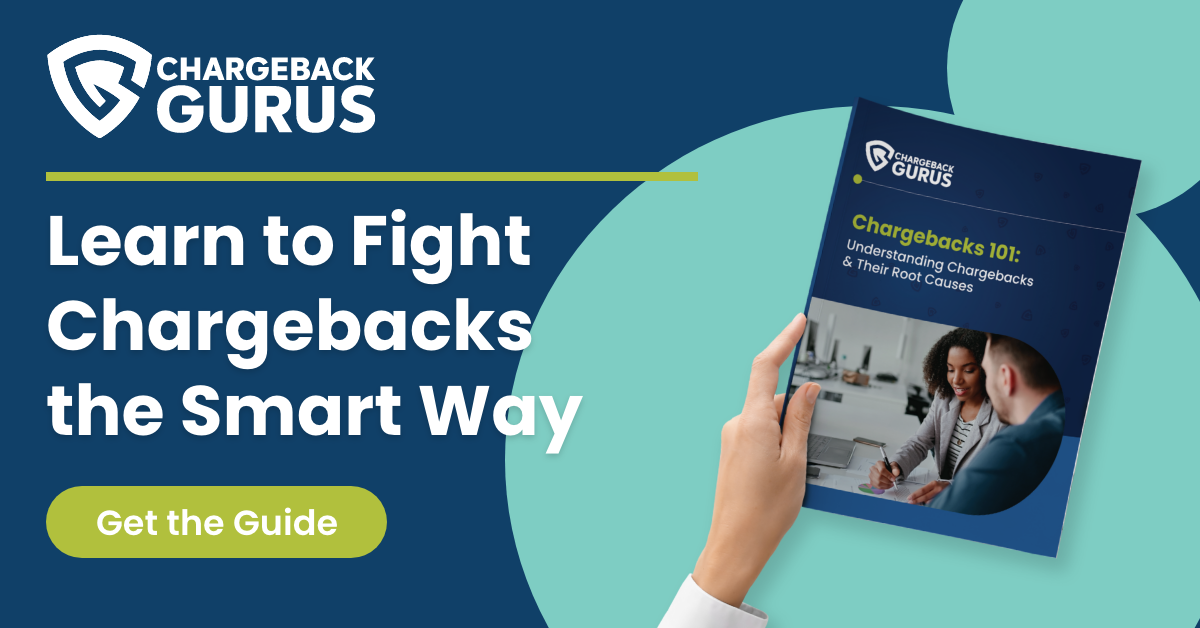The Truth About "No Chargebacks" Agreement Clauses

Many merchants struggle with chargebacks from disgruntled, dissatisfied, or deceptive customers. Merchants can fight these chargebacks and get them reversed, but it’s a time-consuming process that isn’t guaranteed to succeed. Some merchants are trying out a new way of avoiding these chargebacks: making their customers sign a “no chargebacks” agreement as part of their purchase terms.
Under such an agreement, the customer would promise to work out any disputes directly with the merchant instead of complaining to their bank. Can merchants really enforce “no chargebacks” agreements with their customers, and is this an effective way to avoid costly transaction disputes?
- What is a “No Chargebacks” Agreement Clause?
- Can Merchants Enforce a “No Chargebacks” Agreement?
- How Can Merchants Use Customer Agreements to Fight Chargebacks Effectively?
- Conclusion
 Chargebacks are a problem on multiple levels. First, they drain away your hard earned revenue. With each chargeback, you not only lose the item you sold and the overhead expenses that went into putting it up for sale, you also get hit with chargeback fees.
Chargebacks are a problem on multiple levels. First, they drain away your hard earned revenue. With each chargeback, you not only lose the item you sold and the overhead expenses that went into putting it up for sale, you also get hit with chargeback fees.
When you add it all up, the average chargeback costs more than double the amount of the disputed transaction.
In addition to that, your monthly ratio of chargebacks to transactions is monitored by the banks and card networks you work with, and if it exceeds a certain threshold—usually 1%—you can get hit with extra fees and other penalties, or even have your merchant account suspended. No merchant can afford to ignore chargebacks and let them pile up.
The chargeback process was primarily designed to address true credit card fraud, and the best way to prevent that is with the use of powerful anti-fraud tools and cybersecurity best practices. The rest of the chargebacks—the ones resulting from friendly fraud and merchant error—require the merchant to examine their own policies and procedures in order to eliminate the root causes of those disputes.
The trouble with friendly fraud is that it’s hard to predict—it always starts out as a legitimate transaction from a seemingly normal customer. In fact, many friendly fraudsters never set out to be cybercriminals. They file fraudulent chargebacks out of impatience, confusion, frustration, or any number of other irrational motivations. By requiring customers to agree to a “no chargebacks” clause, the thinking goes, they’ll be more likely to do what every card network’s chargeback rules says they’re supposed to do in the first place: talk to the merchant and resolve the dispute directly with them.
What is a “No Chargebacks” Agreement Clause?
Many merchants ask their customers to sign an agreement prior to closing a sale. It might be their terms of service, a sales agreement, a return policy, user license, or some other document. These agreements may be legally binding, or they may be informal acknowledgements. Either way, the practice is not uncommon, and nothing stops a merchant from inserting a “no chargebacks” clause in the sales agreement the customer is required to sign.
The language of a “no chargebacks” clause will usually stipulate that if the customer is unhappy with their purchase, or if there is a quality or performance issue with the product, or some other type of subjective dispute that the customer wants resolved, they will not contact their bank to dispute the purchase transaction. The agreement may prompt the customer to contact the merchant for a collaborative solution, or flatly state that all sales are final and non-refundable.
Can Merchants Enforce a “No Chargebacks” Agreement?
The first problem with “no chargebacks” agreements is that the issuing banks, who decide whether or not to grant chargebacks to their cardholders, neither know nor care about their existence. When the cardholder calls their bank to dispute the charge, the bank isn’t going to ask them if they signed an agreement promising that they wouldn’t do that. If the cardholder presents a valid-sounding claim, the bank will give them the chargeback.
 At this point, the merchant can fight the chargeback through the representment process and submit the signed customer agreement as evidence. However, the issuing bank (and the card network, if the dispute goes to arbitration) will not necessarily consider it relevant or compelling.
At this point, the merchant can fight the chargeback through the representment process and submit the signed customer agreement as evidence. However, the issuing bank (and the card network, if the dispute goes to arbitration) will not necessarily consider it relevant or compelling.
Under U.S. law, consumers have the right to ask for a chargeback when they are defrauded by a third party or a merchant. They can’t forfeit that right by signing a sales agreement, and while some chargeback reason codes will accept as evidence signed documents that relate to the specifics of the dispute claim, there’s no way to force any of the financial institutions involved in a dispute to honor a general “no chargebacks” clause.
What merchants can do is require customers to agree that if they file a chargeback against the merchant, their customer account may be terminated.
This is good practice for friendly fraudsters, who should never be allowed the chance to victimize any merchant more than once. It can also serve as a strong deterrent if you operate a gaming site, streaming service, or any other platform that stores significant user data.
How Can Merchants Use Customer Agreements to Fight Chargebacks Effectively?
“No chargebacks” clauses may not have legal teeth, but your terms of service and other customer agreements can still play an important role in chargeback management. Many friendly fraud chargebacks (and some valid chargebacks) are based on subjective disputes between the merchant and the customer.
These claims will often involve things like shipping delays, withheld refunds, subscription cancellations, and goods that don’t match their pictures or description.
In cases like these, the language in your sales agreements can specify the conditions under which customers are entitled to a refund, your shipping policies, the timing of your billing cycles, and other information that can have a direct bearing on whether or not the dispute claim is valid. If you find yourself getting hit with chargebacks that exploit loopholes in your customer agreements, it may be time to update them.
Conclusion
Satisfying as it may be to make a customer put it in writing that they’re never going to come at you with a chargeback, these agreements are more about setting expectations than flexing your legal muscles. They may deter some customers from filing unnecessary disputes, but other methods—such as providing a more generous refund policy and increasing your customer service coverage—can accomplish the same objectives. In the long run, it’s better to keep your interactions with your customers friendly, not adversarial.
Thanks for following the Chargeback Gurus blog. Feel free to submit topic suggestions, questions, or requests for advice to: win@chargebackgurus.com



